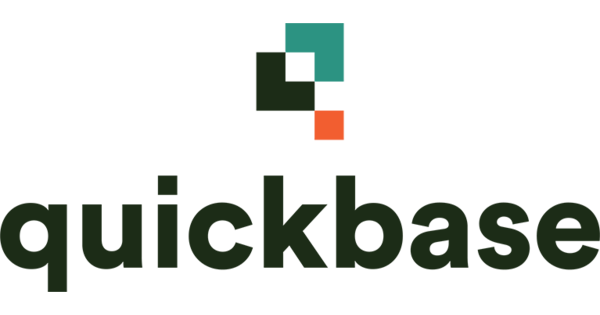how can you do quickBase quickBooks integration?
Call us for instant help – We are available 24*7

QuickBase is a low-code platform that allows businesses to create custom applications without the need for coding knowledge. QuickBooks is a popular accounting software used by small businesses and freelancers. While both platforms are powerful on their own, they can be even more effective when used together. QuickBase QuickBooks integration allows businesses to automate bookkeeping tasks and access data in real time. This can save valuable time and resources, freeing up employees to focus on more strategic tasks.
Here’s a guide on how you can do it quickly and easily. In just a few simple steps, you can have your data flowing between the two programs and make your accounting process smoother and more efficient. So read on to find out how it’s done!
QuickBase: Overview

Custom business applications can be built with QuickBase, a cloud platform. A user can create his or her own application based on the platform. Furthermore, there is an application exchange where hundreds of pre-calculate applications are available for a wide range of business disputes on the platform. You can use QuickBase in various ways like task management, CRM, etc.
Read More - How to Install and Setup QuickBooks Desktop Enterprise?QuickBooks: Overview

Small businesses can use the accounting software package QuickBooks to handle their money. The program can handle customers and vendors, create bills and reports, track income and expenses, and manage clients. Inventory management, payroll processing, and tax preparation are all possible using QuickBooks. The application also provides a variety of features that might assist companies in streamlining their processes.
Intuit QuickBooks and QuickBase Integration: Use Cases
Look at the points that show the cases where integration has taken place:
- It is used in managing the data.
- It helps in building automated workflows.
- You can move & copy data with the help of ETL.
- It is used in software development that creates unique programs.
- You can manipulate data & retrieve it with the help of Data Virtualization.
- In making charts, and reports you use QuickBase integration with QuickBooks.
Common QuickBase QuickBooks Online Integration
- Sales Team Look for Opportunities & Actions in QuickBase: In QuickBooks, an invoice is created when a product or opportunity is sold.
- Price lists in QBs are included in QuickBase: Which makes it easier to estimate or invoice accurately.
- Estimators Make Complex References in QuickBase: QuickBase sends the estimate to the customer after it goes through an approval process. Upon the sale of a job, QuickBooks creates a purchase order for the vendor.
- General ledger in QBs is in sync with QuickBase: There is seamless integration between cash flow reporting and projections.
- Teams write their time across a project in QuickBase: A payroll can be run by syncing time with QuickBooks.
- Payments received in QBs are synced to QuickBase: This enables the sales team/project managers to guarantee payment on time.
- Latest Vendors are integrated through QuickBase: A vendor gets added to QuickBooks together with all of the data it has in QuickBase once it has been approved.
Advantages of QuickBase QuickBooks Integration
Both tools are essential for businesses, but what are the advantages of QuickBooks integration to QuickBase? Let’s take a look.
Improved Data Accuracy

When you integrate QuickBase and QuickBooks, you can be confident that your data is accurate. That’s because the integration ensures that data is transferred between the two platforms seamlessly and without errors. This is important because it means that you can trust the data in both QuickBase and QuickBooks, and you don’t have to waste time manually checking for QuickBooks errors.
Increased Efficiency

Another advantage of integrating QuickBase and QuickBooks is increased efficiency. When you integrate the two platforms, you eliminate the need to manually enter data into both systems. This saves you time and allows you to focus on other tasks. In addition, it also reduces the chances of human error, which can lead to costly mistakes.
Improved Decision-Making Capabilities
When you have accurate data in both QuickBase and QuickBooks, you can make better decisions about your business. You can track trends over time and make informed decisions about where to allocate resources. With accurate data, you can avoid making costly mistakes that could jeopardize the future of your business.
Read More - How to Sync QuickBooks Between Two Computers?How QuickBase QuickBooks Online Integration Works?
- Verify QuickBase & QuickBooks Online.
- Select one of the apps to serve as the automation’s trigger.
- Pick an outcome from the other app.
- Choose the information you wish to transfer from one app to another.
Conclusion
QuickBooks is a powerful tool on its own, but when combined with the features of QuickBase, it can be an even more efficient and effective way to manage your business finances. If you’re not currently using QuickBase and are looking for a comprehensive financial management solution, consider integrating QuickBooks and QuickBase. Have you tried integrating QuickBooks and QuickBase? What has been your experience?
Frequently Asked Questions
- From QBs Time, choose the QuickBooks dropdown.
- Then click on Preferences.
You may connect other company apps with QuickBooks, whether they be point-of-sale, E-Commerce, or inventory management programs.
By linking QuickBase and QuickBooks Desktop, it enables you to manage end-to-end workflow and reduce the burden of duplicating effort.






